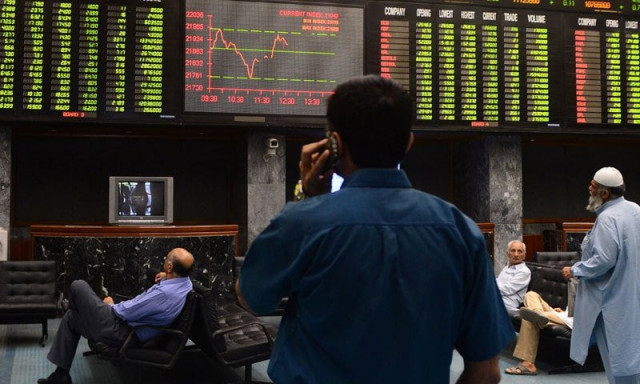Pakistan upgraded to emerging markets status
PSX surges over 2% as Pakistan upgraded to emerging markets status

Karachi Stock Exchange. PHOTO: AFP
MSCI is a leading provider of international investment decision support tools. Its decision is to upgrade the country from the Frontier Markets status is expected to generate inflows of global portfolio investment amounting to $475 million by the middle of 2017, according to EFG Hermes, an Egypt-based investment bank.
Pakistan's economic output rising at healthy pace
Global institutional investors use different MSCI indices – such as frontier, emerging, China and US markets – to create balanced portfolios to generate maximum returns while keeping in view their overall risk appetite.
MSCI communicates its conclusions, based on discussions with the international investment community, on a list of markets under review every June. MSCI announced last year that Pakistan was on its list for possible reclassification in view of improvements in transparency and liquidity.
Pakistan was part of the MSCI EM Index between 1994 and 2008. However, the temporary closure of the Pakistan Stock Exchange in 2008 led MSCI to remove it from the index and classify it as a “standalone country index”. MSCI made Pakistan a part of the Frontier Markets Index in May 2009 and it has remained as such since then.
'Pakistan to receive up to $500 million post MSCI re-classification'
Although the actual reclassification of the index will follow next year, global investors tend to start factoring in the reclassification ahead of the actual change, which prompts massive inflows of global funds in the case of a favourable decision.

Pakistan’s weight in MSCI Frontier Markets Index is about 9% with as many as 16 companies. Its weight in the MSCI Emerging Markets Index will be smaller in percentage terms though. But the reclassification will bring in bigger foreign inflows in absolute terms, as emerging markets attract far more funds than frontier markets.
Assets of more than $9.5 trillion are estimated to be benchmarked to MSCI indices worldwide. According to Next Capital CEO Najam Ali, most frontier market funds will continue their investment in Pakistan even after its reclassification as an emerging market as long as the improving macro theme remains intact.
According to Bloomberg News, the benchmark index of the Pakistan Stock Exchange has gained already 15% this year, making it the best performer in Asia. “The gauge has climbed 4.2% this month, compared with a 0.4% fall in the MSCI Emerging Markets Index,” it said on Tuesday.



















COMMENTS
Comments are moderated and generally will be posted if they are on-topic and not abusive.
For more information, please see our Comments FAQ